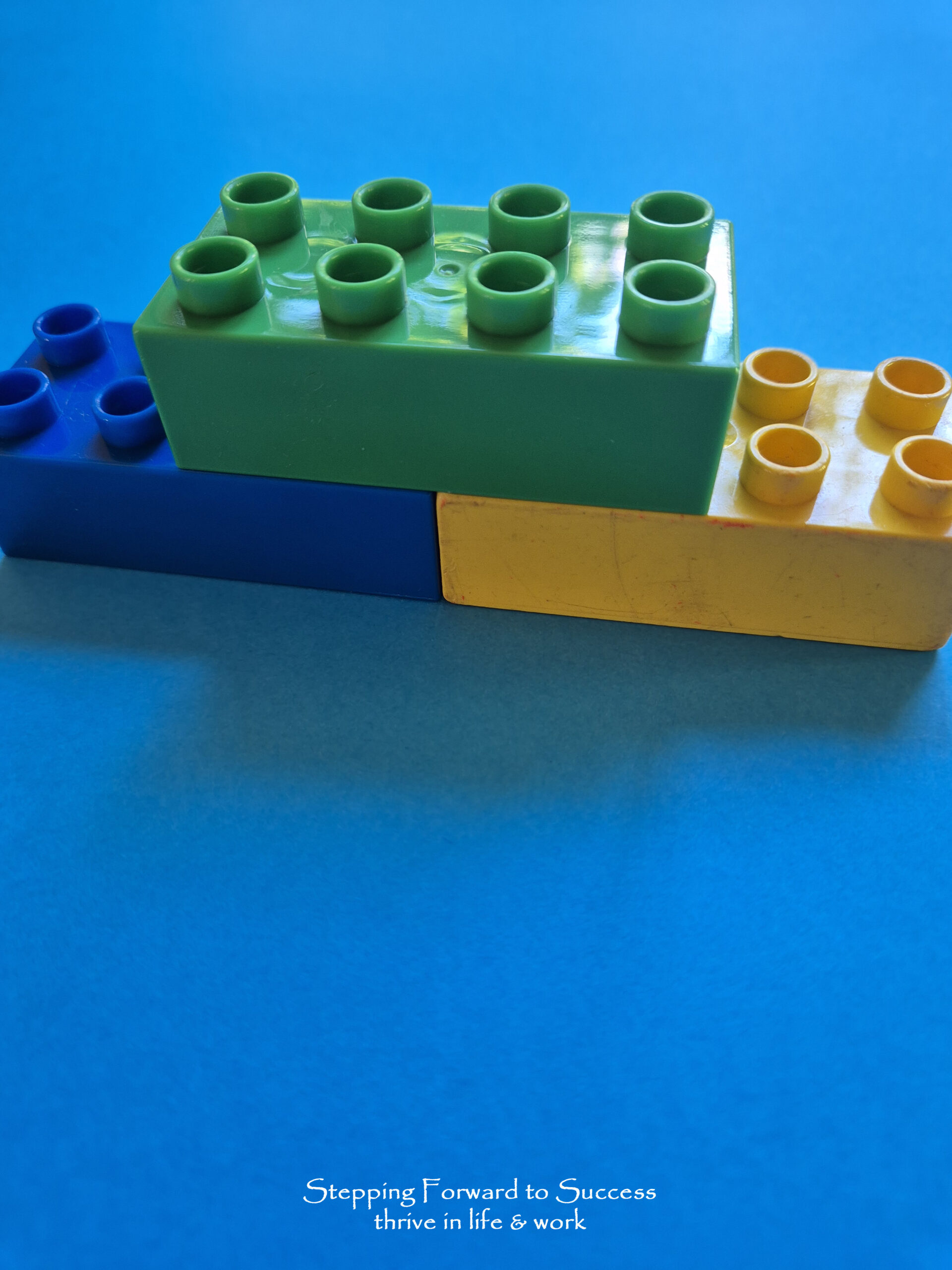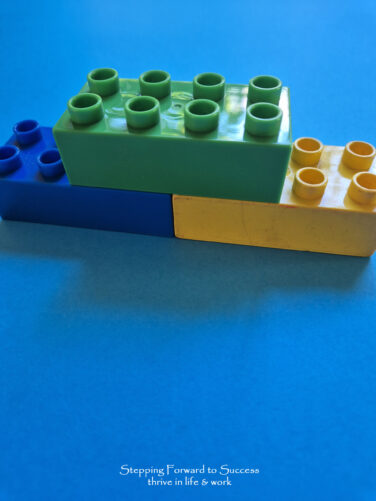You know the saying, two’s company, three’s a crowd?
Well, it couldn’t be more incorrect when it comes to the mentoring relationships you can form as a provisional ECE teacher.
In fact, three can actually be better than two!
Mentoring plays a pivotal role in shaping your skills and confidence as an ECE teacher. You draw on the expertise and support to build the knowledge and practical skills that allow you to thrive in the intense world of ECE.
There are three key players in this process – yourself, your Centre-assigned mentor, and an external mentor.
Together, you form a dynamic and supportive “triangle relationship” that ensures a well-rounded and constructive mentoring experience.
This triangular model leverages the strengths of all three participants to foster professional growth, collaboration and shared accountability.
Let’s explore this powerful concept of external mentoring in ECE in greater detail.

What Is A Triangle Mentoring Relationship?
As a provisional teacher, you are assigned a mentor who works at your Centre to support and guide you throughout the certification process. They will be an invaluable resource as you learn and grow as a teacher.
This is not the only mentoring figure available to you. You can choose to have an additional layer of support and expertise by also engaging with an external mentor. Someone like myself, who is a skilled ECE Mentor and teacher, can provide a unique perspective from outside your Centre, enriching your learning experience further.
Together with yourself and your Centre-assigned mentor, we can form a triangle of support to ensure you get the most out of your provisional teaching period.
The Triangle Relationship Of External Mentoring In ECE
1: The Provisional Teacher – At the Heart of the Triangle
As a provisional teacher, you are at the centre of this mentoring relationship, navigating the complexities of professional growth while juggling the requirements of your teacher certification.
To make this mentoring relationship work, it is part of your role to actively engage with both your Centre assigned mentor and external mentor to seek feedback, reflect on your practice and ensure you are meeting the standards of certification. If you are open, ask questions and embrace challenges, you can create a relationship of success with your mentors.
Having two different perspectives can be a huge benefit to you. You’ll gain day-to-day insight from your Centre mentor and impartial, big-picture guidance from your external mentor. The synergy of these two influences will help you to build confidence, refine your teaching practices and identify areas for improvement, all with constructive support.
2: The Centre-Assigned Mentor – Your Daily Guide
Your Centre-assigned mentor is the person within your ECE Centre who provides you with on-the-ground support. Knowing the Centre’s unique environment, routines and practices allows them to offer you practical, situational guidance.
This can include things like:
- Helping you integrate with the Centre’s team and work culture
- Providing immediate feedback on daily teaching practices
- Support with Inquiry topics that will further your skills and benefit the Centre
- Assisting with setting and progressing on your teaching goals
Their close proximity is invaluable as you’ll always have someone in your corner as you tackle the daily challenges of teaching. However, sometimes their guidance and availability can be influenced by the Centre’s operational demands. That’s where an external mentor can add a complementary layer of support.
3: The External Mentor – Impartial and Holistic Support
An external mentor can bring a unique perspective to your certification journey. As an independent and experienced professional, they are not tied to your Centre, which allows them to provide an objective and holistic approach to mentoring.
This is how an external mentor can support you:
- Offering an impartial lens to evaluate your progress
- Providing tailored guidance for support in the areas you need it most
- Supporting open communication and collaboration between you and your centre-assigned mentor
- Encouraging you to engage in reflective practice to facilitate professional growth beyond the immediate demands of your Centre
The broader perspective an external mentor can provide helps bridge the gap between your day-to-day experiences and the overall goals associated with shaping your teaching practices.
Why The Triangle Relationship Works
The triangle relationship thrives on collaboration, clear communication, and mutual respect between the three of you. Each point of the triangle brings unique strengths that contribute to everyone’s success:
- Provisional Teacher: Gains diverse perspectives and feedback, leading to well-rounded growth.
- Centre-Assigned Mentor: Can learn much from each teacher’s perspective, creating success and progress for the whole Centre.
- External Mentor: Ensures the provisional teacher stays aligned with Our Code Our Standards and fosters reflective practice.
When these three points of the triangle work in harmony, you are empowered to develop your skills confidently while meeting professional expectations, and the benefits don’t stop there. Mentors can learn from the experience of mentoring too! It can highlight areas of necessary focus within the Centre and create opportunities for the evolution of practices and processes.
Finally, this model benefits the ECE sector as a whole by producing highly capable, reflective, and passionate educators who are willing to collaborate and grow.
Creating An Effective Triangle
To make the triangle relationship work effectively, it is essential to have strong communication and clarity in responsibilities. Here are some practical tips for creating a productive mentoring triangle:
Establish Clear Expectations: Having a discussion about roles, responsibilities and communication preferences will set clear expectations from the beginning of the relationship, ensuring nothing is lost in translation.
Schedule Regular Check-Ins: Consistent meetings will ensure consistent progress. Meetings with your mentors provide the perfect forum to celebrate successes and address challenges. So, ensure you lock in regular triangular and individual meetings throughout the year. Not only will this encourage progress, but it will also meet the expectations set in your mentorship agreement. Once the dates are set, everyone should do their best to prioritise attendance at these important catchups.
Foster Open Communication: Honest and respectful dialogue is essential. That way, you will build trust with each other and gain the most from the relationship. It also allows you to resolve challenges or conflicts effectively.
Stay Focused: The whole purpose of the triangular mentoring process is to provide you with the support you need to complete your teacher certification. Make sure that focus remains central. Your mentors can help tailor their support in a way that addresses your individual strengths, challenges and career goals.
Forming The Triangle
A triangle mentoring relationship is a powerful model that will support your journey to full certification. By combining your powers, the three of you can ensure an effective, holistic collaboration that everyone can learn and benefit from.
Sure, provisional teachers can benefit from this relationship, but they are not the only ones. All centres, kindergartens and ECE providers can benefit too. Investing in this relationship is not just about supporting individuals to become fully qualified teachers – it’s about building a strong foundation for the future of the profession, one capable and confident educator at a time.
Ready to unlock the full potential of triangular mentorship in ECE? Then, get in touch with me now. I’d love to discuss how my external mentoring services can support you and your centre on this journey.
The great thing about mentorship is that you can layer the support you receive by having both a Centre assigned mentor and an external mentor. Learn more about the Kete Ako programme here: Kete Ako programme.
I also have resources that can be added to your toolkit. Click here to read more about the Roadmap. Or click here to purchase the Roadmap to Certification e-book for Provisional Certified Teachers. Alternatively, if you are wanting to learn more about my packages, reach out today.
Useful links:
My Website

